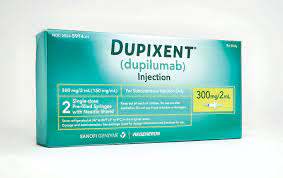
18 Sep Asthma: Monoclonal Antibody Dupixent Demonstrates Sustained Improvement in Moderate to Severe Disease
MedicalResearch.com Interview with:
Michael Wechsler, M.D., M.M.Sc.
Assistant Professor of Medicine, Harvard Medical School
Dr. Wechsler is Director of the National Jewish Cohen Family Asthma Institute in Denver Colorado and principal investigator of the Dupixent® (dupilumab) Phase 3 open-label extension trial.
MedicalResearch.com: What is the background for this study? Would you briefly explain how Dupilumab differs from other medications of asthma? What are the advantages over steroids, inhalers etc.?
 Response: Asthma is a chronic, progressive disease driven in part by underlying inflammation and requires long-term control of symptoms. Over time, this chronic inflammation can lead to a decline in lung function.
Response: Asthma is a chronic, progressive disease driven in part by underlying inflammation and requires long-term control of symptoms. Over time, this chronic inflammation can lead to a decline in lung function.
The Phase 3 open-label extension trial evaluated long-term safety and efficacy of Dupixent treatment in adults and adolescents with moderate-to-severe asthma who had previously participated in a controlled Dupixent clinical trial, including three pivotal trials that lasted between 24 and 52 weeks. With more than 2,200 patients enrolled, the Phase 3 LIBERTY ASTHMA TRAVERSE open-label extension trial is the largest of a biologic medicine ever conducted in asthma.
Dupixent is a biologic therapy that works differently from existing therapies that treat asthma. Dupixent is a fully-human monoclonal antibody that inhibits the signaling of the interleukin-4 (IL-4) and interleukin-13 (IL-13) proteins. Data from Dupixent clinical trials have shown that interleukin-4 (IL-4) and interleukin-13 (IL-13) are key drivers of the type 2 inflammation that plays a major role in asthma. It is the only biologic to demonstrate sustained improvements in lung function and asthma exacerbations across a broad patient population with type 2 inflammation. Dupixent is not an immunosuppressant.
MedicalResearch.com: What are the main findings of this three year study?
Response: We’re pleased to see that results from the LIBERTY ASTHMA TRAVERSE open-label extension trial showed that the safety and efficacy profile observed in previous Dupixent trials was maintained for up to three years in adults and adolescents with moderate-to-severe asthma.
The proportion of patients with adverse events (AEs) in the open label extension trial was similar to that seen in prior pivotal trials of Dupixent in asthma. Over the 96-week treatment period, overall AE rates were 76-88%, and overall serious AEs were experienced by 9-13% of patients.
Patients experienced sustained improvements in lung function at 96 weeks. They also maintained low rates of severe asthma attacks, at an average of 0.31-0.35 events per year. In the year prior to commencing Dupixent trials, the rate of severe asthma attacks was 2.09-2.17 events per year. In these long-term results, patients showed reductions in markers of type 2 inflammation including blood eosinophils or fractional exhaled nitric oxide (FeNO).
These results reinforce the importance of Dupixent as a continuous, long-term treatment option to improve patients’ ability to breathe and maintain control of their asthma, particularly in those with higher markers of underlying type 2 inflammation.
MedicalResearch.com Who are the appropriate candidates for this longer-term treatment? Would you discuss any safety concerns?
Response: As always, I recommend patients discuss any questions they have about their treatment plan with their healthcare provider.
Dupixent is approved in the U.S. for use with other asthma medicines for the maintenance treatment of moderate-to-severe eosinophilic or oral steroid dependent asthma in patients aged 12 years and older whose asthma is not controlled with their current asthma medicines. Dupixent is not used to treat sudden breathing problems. It is unknown if Dupixent is safe and effective in children with asthma under 12 years of age.
Dupixent is also approved for additional uses in certain patients with atopic dermatitis and CRSwNP. In adolescents 12 years of age or older, it is recommended that Dupixent be administered by or under the supervision of an adult. In children younger than 12 years of age, Dupixent should be administered by a caregiver.
Patients should not use this medication if they are allergic to dupilumab or to any of the ingredients in Dupixent.
Citation:
Wechsler M, et al. Dupilumab long-term safety and efficacy in patients with asthma: LIBERTY ASTHMA TRAVERSE. Late-Breaking Abstract and Poster 4613, ERS International Virtual Congress 2020, 7-9 Sept.
[wysija_form id=”3″]
[last-modified]
The information on MedicalResearch.com is provided for educational purposes only, and is in no way intended to diagnose, cure, or treat any medical or other condition. Always seek the advice of your physician or other qualified health and ask your doctor any questions you may have regarding a medical condition. In addition to all other limitations and disclaimers in this agreement, service provider and its third party providers disclaim any liability or loss in connection with the content provided on this website.
Last Updated on September 21, 2020 by Marie Benz MD FAAD
